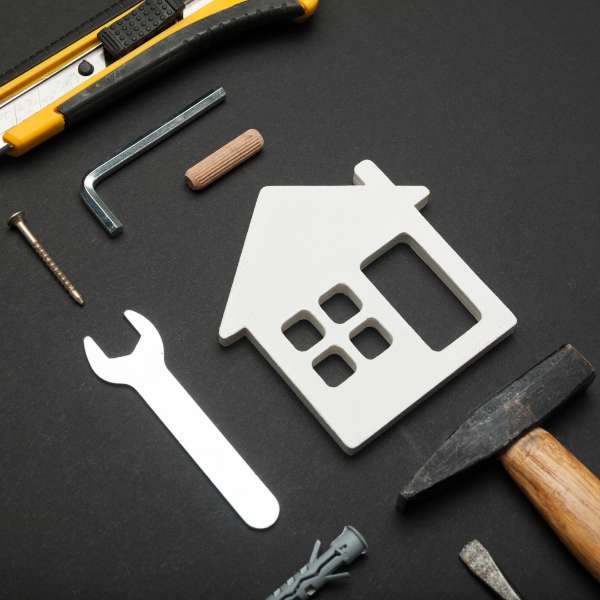In today's fast-paced business environment, maintaining the functionality and aesthetics of commercial properties is paramount. Commercial maintenance services play a crucial role in ensuring that buildings operate efficiently, remain safe, and provide a pleasant environment for occupants.
Defining Commercial Maintenance Services
Commercial maintenance services encompass a range of tasks aimed at preserving and enhancing the condition of commercial properties. These services include routine inspections, repairs, and preventive measures to ensure that all building systems function optimally. The primary goal is to prevent disruptions, extend the lifespan of assets, and maintain a safe environment for employees and visitors.
Key Components of Commercial Maintenance
Effective commercial maintenance is multifaceted, involving various types of upkeep to address different needs:
Routine Maintenance
This involves regular tasks such as cleaning, landscaping, and minor repairs. Routine maintenance ensures that the property remains presentable and prevents minor issues from escalating.
Preventive Maintenance
Scheduled inspections and servicing of equipment help identify potential problems before they occur. For example, regular checks of HVAC systems can prevent unexpected breakdowns and costly emergency repairs.
Corrective Maintenance
This refers to repairs undertaken after a fault or failure has occurred. Timely corrective maintenance is essential to restore functionality and minimize downtime.
Types of Commercial Maintenance Services
Commercial properties require a variety of maintenance services to address the diverse components of the building:
HVAC Systems Maintenance
Regular servicing of heating, ventilation, and air conditioning systems ensures optimal indoor air quality and energy efficiency. This includes cleaning filters, checking for leaks, and calibrating thermostats.
Electrical Systems Maintenance
Ensuring that electrical systems are functioning correctly is vital for safety and efficiency. This includes inspecting wiring, testing emergency lighting, and maintaining electrical panels.
Plumbing Maintenance
Regular inspection and repair of plumbing systems prevent issues such as leaks, blockages, and water damage. This includes checking pipes, fixtures, and drainage systems.
Structural Maintenance
Maintaining the structural integrity of the building involves inspecting and repairing elements like the foundation, walls, and roofing. Addressing minor issues promptly can prevent major structural problems.
Exterior and Grounds Maintenance
This includes tasks like landscaping, parking lot maintenance, and exterior cleaning. A well-maintained exterior enhances curb appeal and creates a positive impression.
Benefits of Regular Commercial Maintenance
Investing in regular maintenance offers several advantages:
Enhanced Safety and Compliance
Regular maintenance ensures that the building adheres to safety regulations, reducing the risk of accidents and legal liabilities. This includes maintaining fire safety systems and ensuring accessibility compliance.
Cost Savings and Efficiency
Preventive maintenance helps avoid costly emergency repairs and extends the lifespan of building systems, resulting in long-term cost savings. Efficient systems also reduce energy consumption, lowering utility bills.
Prolonged Asset Lifespan
Consistent upkeep preserves the value of the property and its components, delaying the need for expensive replacements. For instance, regular roof inspections and repairs can extend the roof's lifespan significantly.
Choosing the Right Maintenance Service Provider
Selecting a reliable maintenance provider is crucial for effective property management:
Assessing Qualifications and Experience
Ensure the provider has a proven track record and the necessary certifications to perform the required services. Experience with similar properties is a valuable indicator of competence.
Evaluating Service Offerings
Choose a provider that offers a comprehensive range of services tailored to your property's specific needs. This ensures all aspects of maintenance are covered under one contract.
Considering Response Times and Availability
Timely response to maintenance issues is critical. Ensure the provider offers prompt service and has emergency support available when needed.
Implementing an Effective Maintenance Plan
A structured maintenance plan is essential for systematic upkeep:
Conducting a Comprehensive Assessment
Begin by evaluating the current condition of the property to identify areas requiring attention. This assessment forms the basis for the maintenance strategy.
Developing a Scheduled Maintenance Program
Establish a timetable for routine and preventive maintenance tasks, ensuring all building systems are serviced regularly. This schedule helps in planning and budgeting for maintenance activities.
Monitoring and Adjusting the Plan
Regularly review the effectiveness of the maintenance plan and make necessary adjustments based on feedback and changing needs. Continuous improvement ensures the plan remains relevant and effective.
Conclusion
Commercial maintenance services are integral to the smooth operation and longevity of commercial properties. By addressing routine, preventive, and corrective maintenance needs, these services ensure that buildings remain safe, functional, and aesthetically pleasing. Whether it’s maintaining HVAC systems, keeping the plumbing in check, or enhancing the building’s exterior appeal, commercial maintenance supports business continuity and safeguards investments.
Choosing the right service provider, coupled with a structured maintenance plan, can make all the difference in achieving cost efficiency, regulatory compliance, and asset preservation. Embracing regular maintenance isn't just about fixing what's broken—it’s about future-proofing your property for years to come.
Looking for reliable and comprehensive maintenance solutions? At Complete Maintenance Experts, we specialise in keeping your property safe, functional, and in top condition. From HVAC systems to structural repairs, our experienced team ensures every detail is handled with precision. Contact us today to schedule a consultation and experience service excellence tailored to your building's needs
Frequently Asked Questions (FAQs)
1. What is included in commercial maintenance services?
Commercial maintenance services cover tasks like HVAC servicing, plumbing repairs, electrical maintenance, structural inspections, and exterior upkeep. The specific scope depends on the property's needs and the chosen service provider.
2. How often should commercial buildings undergo maintenance?
The frequency depends on the building's size, usage, and systems in place. Generally, routine tasks like cleaning and landscaping occur weekly, while HVAC and plumbing checks might be quarterly or bi-annually.
3. Why is preventive maintenance important?
Preventive maintenance helps identify and address potential issues before they escalate. This proactive approach reduces downtime, saves money on emergency repairs, and extends the lifespan of building systems.
4. How can I choose the right maintenance service provider?
Look for providers with relevant experience, a wide range of services, and quick response times. Checking reviews, certifications, and case studies can also help you make an informed decision.
5. Can commercial maintenance save costs in the long term?
Absolutely! Regular maintenance prevents costly repairs, improves energy efficiency, and extends the life of building systems, resulting in significant savings over time



































